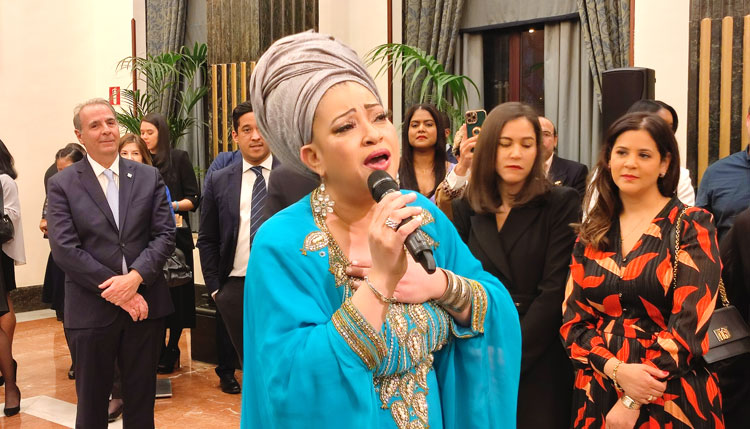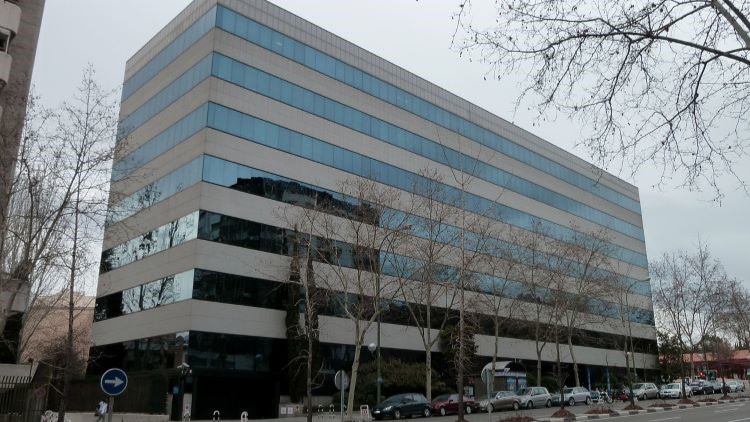Juan David Latorre
The Embassy of the Dominican Republic celebrated last Monday the 179th anniversary of the independence of its Republic, in which Ambassador Juan Bolívar Díaz affirmed that “the vindictive and constitutionalist revolution of 1965 generated the beginning of the stage of greater social and democratic stability, with a growth that today accredits us as the largest economy of the Caribbean and Central America and the eighth of all Latin America and the Caribbean”.
After reviewing the historical events that took place during and after independence up to the present day and from the memory of the liberator Juan Pablo Duarte, Ambassador Juan Bolívar Díaz highlighted “the constant demands to liberate the nation by legions of patriots who with their sweat and blood have paved the way for the Republic to become one of the most stable and prosperous in the region today.”
Referring to the role of the current Dominican government, the Dominican ambassador highlighted the “fight it is waging against corruption and drug trafficking, which have squandered so many resources during our history, enthroning transparency, accountability and the independence of control bodies.”
With regard to his country’s tourism sector, Juan Bolívar Díaz stressed that since the last quarter of 2021, “the influx of tourists exceeded the year just prior to Covid, also registering the recovery of employment to previous levels”; although he also acknowledged the “unfinished business in terms of education, new technologies, the quality of health services, citizen security, employment or the protection of Mother Nature”.
“The foreign policy of our government, the ambassador said, is based today on three fundamental pillars: the promotion and defence of the Dominican community abroad, the increase in trade, tourism and foreign investment, and the defence of democratic values and human rights. In Spain, we are working intensely within the Dominican community, supporting the actions of the diaspora, promoting youth entrepreneurship, artistic and sporting activities, with a programme to vindicate culture and the mystique of Dominicans”.
“The links that tie us to Spain are historical, Juan Bolivar stressed, of a cultural nature, proudly claiming to have been the first Spanish and European settlement in America and a bridge to the north, centre and south of our immense continent.”
Referring to the Dominican community residing in Spain (made up of some 65,000 people at the end of last year), the ambassador commented that “they work hard, seeking to secure their lives and those of their families. The entire national diaspora has contributed to economic stability and poverty reduction in the country by returning a volume of foreign exchange that exceeds even the first industry, which is tourism. The vast majority of these immigrants have integrated into Spanish society and are grateful for the welcome they have received”.
“Direct Spanish investment in the Dominican Republic is second only to that of the United States, and has been fundamental in the development of tourism, so much so that close to 80% of the hotel rooms are of Spanish capital.” As for Dominican students coming to Spain for postgraduate studies, the ambassador put the number at 16,295 young people between 2005 and 2021, “with scholarships from the Government of the Republic, averaging more than a thousand per year. And hundreds more have paid for their studies with family resources in Spanish universities, of which the Dominican Ministry of Higher Education has agreements with 33 of them and institutions of higher education”.
Finally, Ambassador Juan Bolívar called for “an end to the war and destruction in Ukraine, with the consequent death of its children. And also, why not, so that young Russians do not continue to die, because as the Dominican poet said: ‘Even if the corpses are black, yellow or white, their blood is red and rises to God in tears’.”
The reception was attended by the ambassadors of Nicaragua, Venezuela, Brazil, Guatemala, Switzerland, Ecuador, Korea, Andorra and Haiti.












